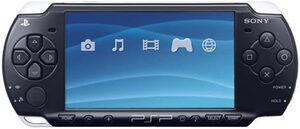
If you were to listen to (and believe) much of the Western video games media, you'd probably be fooled into thinking Sony's Playstation Portable has been an abysmal failure.
Released in 2005, the PSP has mustered sales of over 60million units worldwide in those five years since launch - figures not particularly shy of Nintendo's Game Boy Color and Game Boy Advance range. Impressive, given Nintendo's control of the market.
In the past, other platform holders have tried to compete with Nintendo in their own space - Atari Lynx, SEGA Game Gear - and have failed horrendously. So why aren't we putting up the balloons for Sony's incredible effort - which is still leading the market in Japan as we type.
Seasoned industry analyst Michael Pachter described Sony as "running into a brick wall" with the PSP, but we're not entirely sure what he's getting at. No doubt, the PSP has its problems - the control set-up is poor, the device is a jack of all trades but perhaps a master of none, and piracy is a huge, huge problem - but is 60million units really considered a failure? Especially for a device that is Sony's first-foray into the handheld market in a space heavily controlled by Nintendo. Yes, the introduction of the iPhone has clearly been detrimental to Sony's philosophy in the West — but it also provides a stark blueprint for Sony to look to when it comes to the PSP's inevitable sequel.
Indeed, there is much for Sony to learn about the portable space - but there is also much for Sony's competitors to learn from the Playstation Portable. It could be argued that no device currently on the market offers the same depth of functionality as the PSP right now. Just looking to the office PSPgo, we have a device capable of playing music, renting and watching movies, playing games on the scale of Grand Theft Auto and a music production suite in Beaterator.
Flawed? Yes. Failure? An injustice.





Comments 0
Wow, no comments yet... why not be the first?
Leave A Comment
Hold on there, you need to login to post a comment...